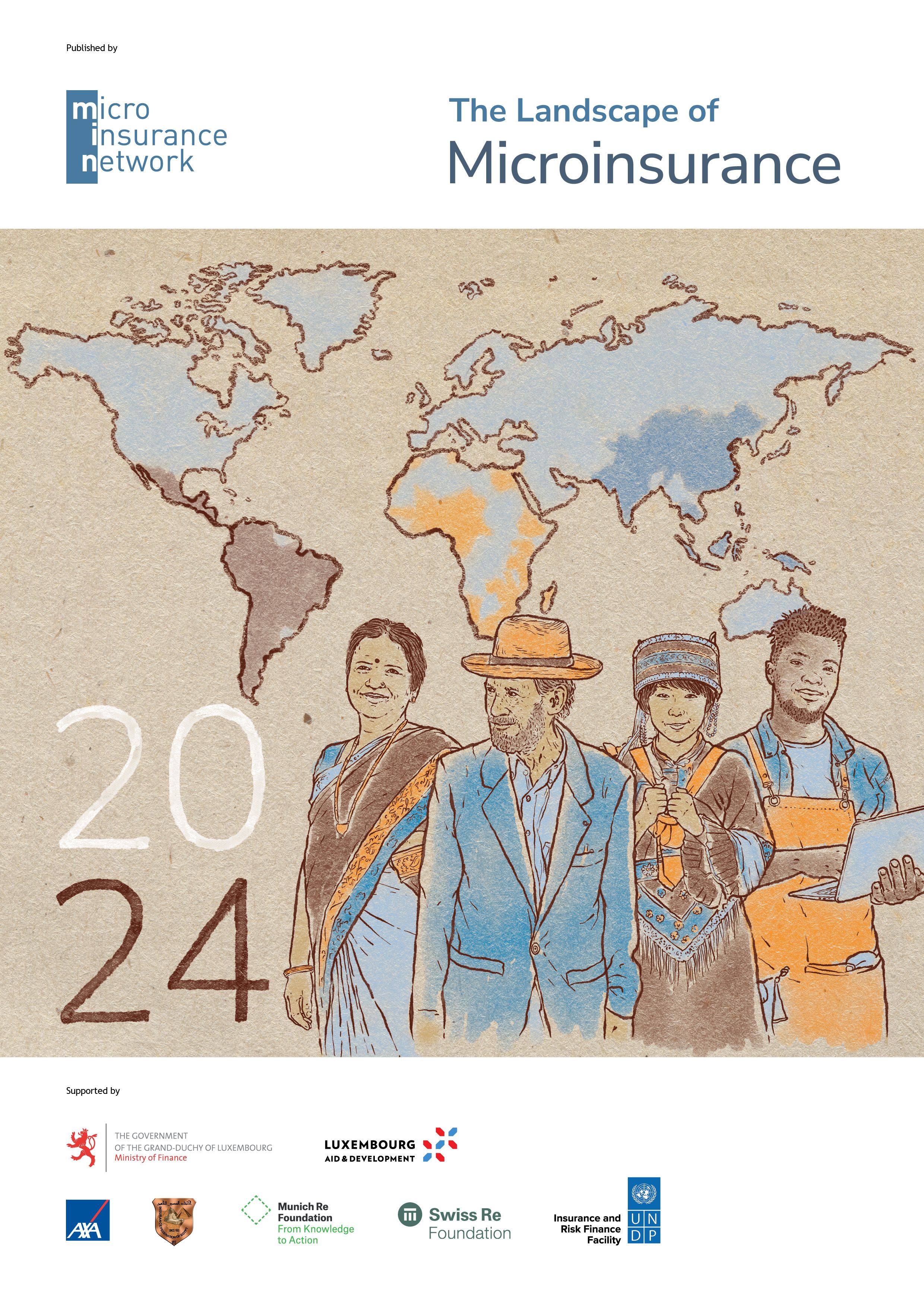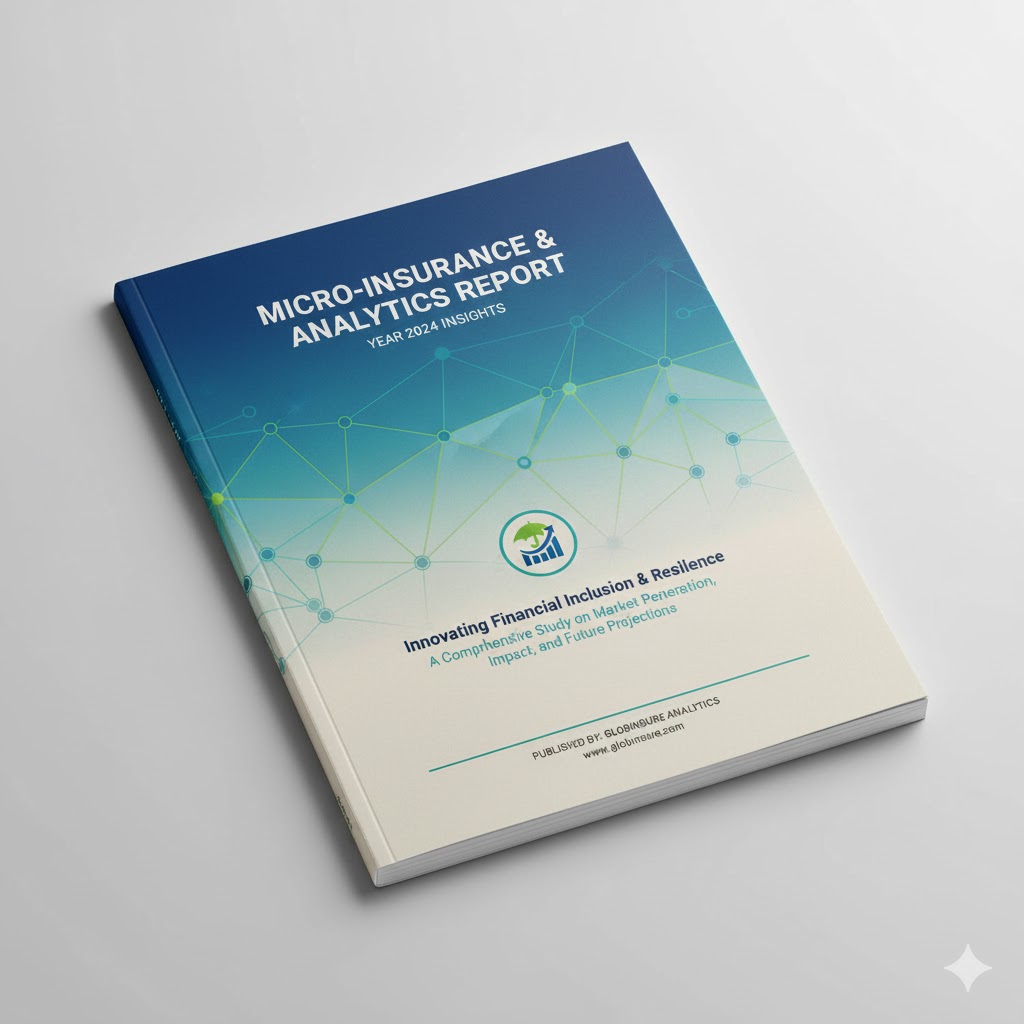Displaying 1 - 15 of 24

The Landscape of Microinsurance 2024
The Landscape of Microinsurance 2024 analyzes the growth and evolution of microinsurance, highlighting its critical role in supporting vulnerable populations facing climate shocks, crises, and financial insecurity. It covers 344 million people across 37 countries, examines regulatory frameworks, distribution channels, and subsidies, and emphasizes the need to close the protection gap while fostering long-term market development.
Date Issued
2024
Topics
Products
Region

Case brief: ALM SEGUROS
Case brief: ALM SEGUROS. This presentation introduces ALM Seguros as one of the pioneering microinsurance companies in Brazil. The company focused on delivering accessible life and funeral insurance to underserved communities, building trust through affordable premiums and simplified claims. The case illustrates how early entrants in the Brazilian market paved the way for inclusive insurance by aligning product design with local needs and regulatory frameworks.

Case brief: FASECOLDA
Case brief: FASECOLDA. This entry presents the activities led by the Federation of Colombian Insurers (Fasecolda) to strengthen inclusive insurance in Colombia. It covers efforts in financial education, technical training, regulatory engagement, and the promotion of innovative products for underserved segments. The case demonstrates how institutional leadership and coordinated action have advanced capacity building and inclusion in the Colombian insurance sector.

Case Brief: Field Accident Insurance - PROFIN Foundation
Field accident insurance – PROFIN Foundation. This case highlights a specialized microinsurance product developed in Bolivia to cover medical expenses resulting from injuries during official soccer, basketball, and volleyball matches. Distributed through sports associations, the product is tailored to the needs of amateur athletes and addresses a previously uninsured risk segment. It showcases how inclusive insurance can be adapted to community-based distribution and activity-specific protection.

Case Brief: Field Accident Insurance - PROFIN Foundation
Since 2018, Bolivia's PROFIN Foundation has offered a unique sport accident insurance for amateur football players with no medical coverage. The product is distributed through sports associations and covers players' injuries during official matches. Today it protects over 9,000 players, and has prompted other insurers in Bolivia to develop similar offerings.
Date Issued
2020
Topics
Products

Case brief: MIDAGRI
Case brief: MIDAGRI. The Peruvian Ministry for the Development of Agriculture and Irrigation (MIDAGRI) introduced agricultural insurance as a strategic policy tool to enhance the competitiveness of the agricultural sector. This led to the creation of the Seguro Agrícola Catastrófico (SAC), a public insurance program designed to protect smallholder farmers from extreme weather-related losses. The case outlines the structure of SAC, its implementation, and the government's role in building resilience through accessible, state-supported agricultural insurance.

Case brief:TUNAJALI
Case brief: TUNAJALI. "Tunajali" — meaning "we care about you" — is an inclusive e-commerce insurance initiative developed to serve low-income customers across Latin America and the Caribbean (LAC). The program leverages digital platforms to provide accessible health insurance, with a focus on simplifying enrollment and claims processes. It demonstrates how tech-enabled delivery models can overcome traditional barriers and scale protection for vulnerable populations.

Challenges of Rural Insurance in the Context of Climate Change: the Case of Soybeans
Product for low-income urban dwellers in flood-prone areas of São Paulo, offering quick post-disaster payouts.
Date Issued
2023
Topics

Climate insurance for coffee farmers
Blue Marble partnered with Nespresso to provide weather index insurance to coffee farmers. Automatic payouts based on satellite rainfall data. Coverage expanded to multiple countries.

COVID-19 and the Insurance Industry: Why a Gender-Sensitive Response Matters
COVID-19 and the Insurance Industry: Why a Gender-Sensitive Response Matters. This guidance note explores how the COVID-19 pandemic affected the gender gap in insurance access and services. It identifies four key areas where applying a gender lens can improve customer-centricity: operational practices, brand communication, product innovation, and new distribution channels. With practical insights from IFC's Women's Insurance Program, the paper offers a roadmap for insurers to better serve women during and beyond crisis periods.
Date Issued
2020
Region

IFC Inclusive Business Case Study: MicroEnsure
MicroEnsure bundled insurance with mobile loans and airtime in 15 countries. By 2016, this model had scaled to reach over 40 million clients and included 200+ insurance products. It illustrates a high-impact approach to mobile-enabled microinsurance delivery with large-scale outreach.
Date Issued
2016
Topics
Products

Insurance Automation by Lead Foundation in Egypt
Insurance automation initiative led by Lead Foundation in Egypt, exploring how digital systems can enhance access to inclusive life insurance. The case outlines the broader poverty and economic context, key capacity-building interventions, implementation strategy, and an honest reflection on both the successes and challenges faced. It also discusses project outcomes and lessons learned, offering a blueprint for tech-enabled insurance in underserved regions.

InsuResilience Solutions Fund – Development of an Insurance Programme for Public Schools in Peru
Public-private partnership to insure 50,000+ Peruvian public schools against natural disasters with parametric payouts. Led by APESEG and ISF with support from IDF, AXA XL, and Munich Re.
Date Issued
2021
Topics
Products

Making Access to Insurance Happen for People with Disabilities and Small Businesses and Micro-entrepreneurs
WFP piloted an inclusive weather-index insurance scheme for ~4,800 people in El Salvador, targeting women entrepreneurs and people with disabilities. The product enabled fast payouts during climate shocks and removed traditional credit-based enrollment barriers.

Making Climate Risk Microinsurance Work. Case Study: MiCRO & Aseguradora Rural (AR), Guatemala
Partnership between MiCRO and Aseguradora Rural to deliver parametric climate microinsurance to smallholder farmers and microentrepreneurs in Guatemala through bundled loans.
Date Issued
2022
Topics
